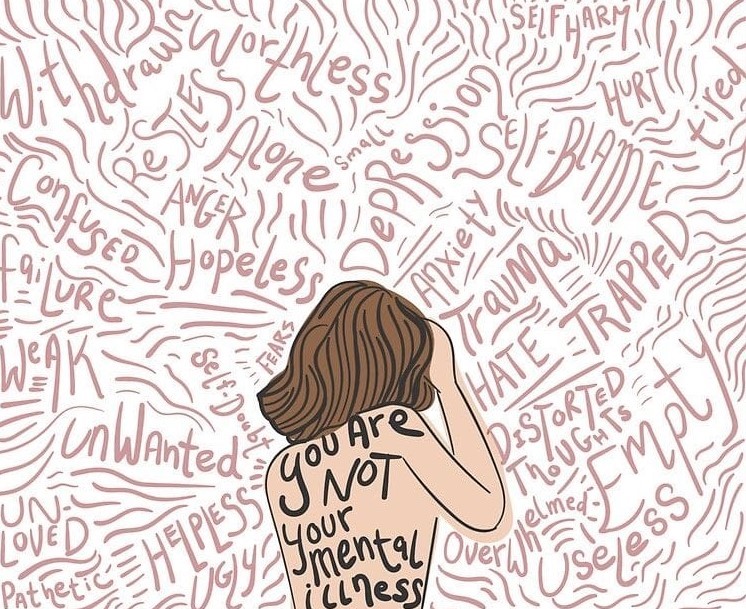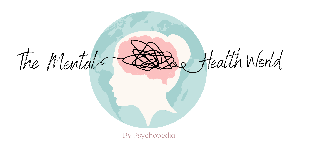
What Is Stigma?
Stigma is a negative attitude or discrimination against people based on certain characteristics which differentiate them from others. People can be stigmatized based on skin color, ethnicity, disability, mental illness, etc.
Stigma Against Mental Health
Mental health stigma is the disapproval or shame imposed by society on the people living with a mental illness. From considering people suffering from mental illness as possessed with evil spirits to the evolution of psychiatry and psychology today. The stigma continues to rise despite having an increased awareness.
Stigma arises due to a lack of knowledge which is very evident in the case of mental health even today. People living with a mental health condition are often stigmatized by being labeled as per their condition. A person will be called “a schizophrenic” rather than “a person having schizophrenia.”
Language and Our Choice of Words Contribute to Social Stigma
Common Labels Used to Describe People with Mental Illness
- “Crazy”
- “Gone nuts”
- “Psycho”
- “Cuckoo”
- “Mental”
- “Bipolar”
- “Retarded”
Words have power, if misused they can further lead to greater shame around getting a mental health diagnosis. We must avoid using terms related to serious medical diagnoses while describing our everyday moods and habits. For instance, calling someone as “OCD” for liking being organized and clean. The more casually these terms are used in everyday language, the less its relevance and seriousness get.
Role of Mass Media in Reinforcing Stigma Against Mental Health
Mass media plays a major role as a source of information to the general public at large. If that information or the message is disseminated wrongly, it can cause a lot of damage to the issue itself.
Similar is in the case of mental health, mainstream media must act responsibly to de-stigmatize the issues relating to mental health conditions.
A recent example of how films and the makers get it wrong while portraying some serious mental illnesses is “Atrangi Re”, the film has faced a lot of flak on certain issues like generalizing different mental disorders (OCD, Bipolar, Schizophrenia) as displaying the same symptoms, romanticizing the hallucinations experienced by Rinku (Sara Ali Khan.) The insensitivity shown in the character of the doctor, the psychiatrist calls the woman with the mental condition “pagalpan”, draws in a lot of stigmatized notions into the minds of the audience. It has been accused of trivializing mental health disorders.
In a Netflix series called “13 Reasons Why”, the plot surrounds teenage suicide and mental health. The criticism comes from the mental health experts about the inaccurate portrayal of suicide and its potentially dangerous impact on at-risk teens. The romanticized representation of suicide emphasized very few suicidal risk factors like interpersonal relationships and ignored the rest, it missed out on the opportunity to inform audiences about the warning signs of suicide and how the family and friends could offer the right kind of support. The show was also accused of misrepresentation of the mental health professionals like Mr. Poter, the school counselor, his behavior towards his student sharing her issues was emotionally unavailable and not at all compassionate. Such kind of portrayal could further stigmatize the whole help-seeking choices.
Media reinforces the stigma against mental health by its problematic approach, be it in overdramatization, minimizing its seriousness, or even using mockery of serious mental illnesses.
The Harmful Impact of Stigma
Stigma, be it public or self-stigma impacts drastically, not only the people living with a mental health condition but also the whole topic around mental health and its importance.
- Consider mental illness as embarrassing.
- Avoid having an opening conversation about their mental health condition.
- Reluctance to help-seeking and treatment.
- Self-stigma and internalized shame about their mental condition.
- Worsened symptoms.
- Negative effect on the recovery.
- Lack of support from family, friends, colleagues, etc.
- Difficulties at the workplace.
Dealing with the Mental Health Stigma:
- Using Person-Centered Language
This means the use of language and words that put people first and recognize their unique qualities, strengths, and worth. Using people-first language emphasizes a person and not the illness. For example, instead of calling someone “Mentally ill” choose to use “Person with a mental illness.”
- Encourage more open discussions about mental health and the personal experiences
The celebrities like Lady Gaga, Dwayne Johnson, Selena Gomez, etc. used the medium to openly share their personal experiences with mental health challenges and helped bring the discussion into everyday conversation.
- The National Alliance on Mental Illness [NAMI], a US-based mental health organization made some suggestions to de-stigmatize the mental illness and mental health discussions-
- Talk openly about mental health. People are looking for personal stories and anecdotes to normalize their feelings and feel they are not alone.
- Educate yourself and others around you about Mental Health and its related issues. Lack of information and knowledge births stigma.
- Conscious use of language. Avoid using derogatory words like crazy, insane, etc.
- Equality between Physical and Mental illness.
- Show compassion to the person living with a mental health condition.
- Choose empowerment over shame.
- Be honest about the treatment. “I have an appointment with a therapist” is as normal as saying “I have an appointment with a primary care doctor.”
Stigma and discrimination are still very much prevalent in society today. Thus, stigma against mental health needs to be broken down at both personal and public levels. Open discussions, mental health care services, and the right attitude are required to break the silence against mental health.
By DEEBHA SITHTA

